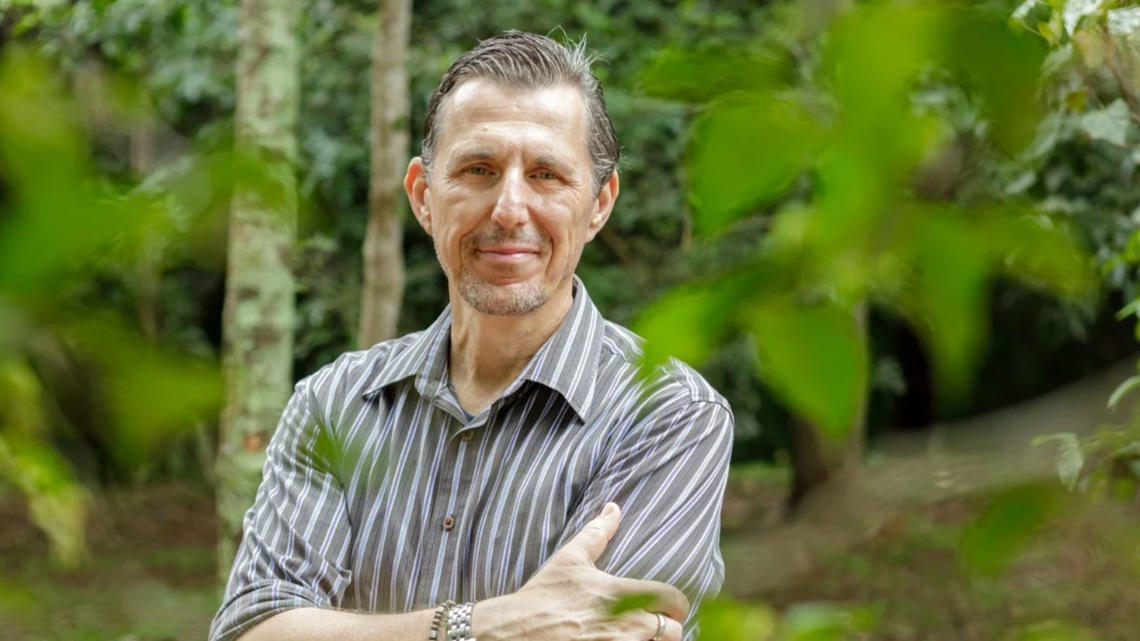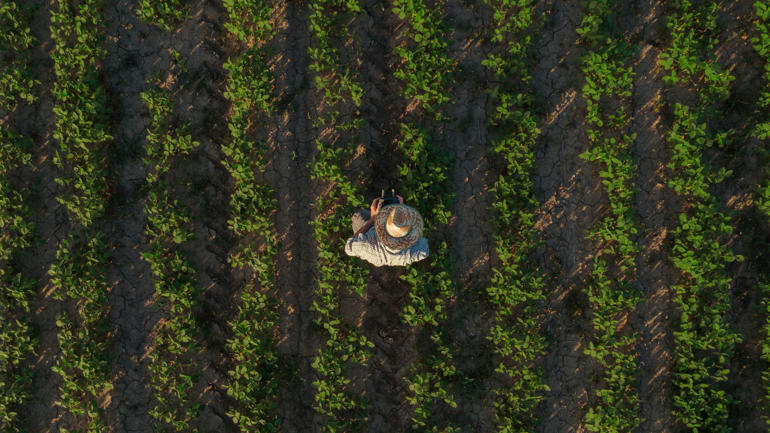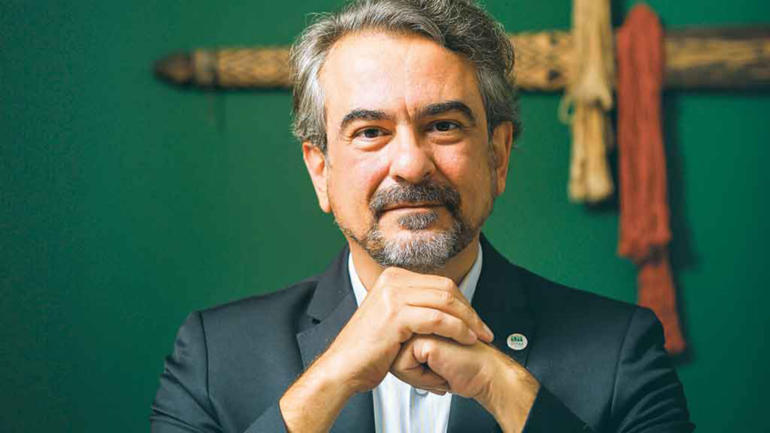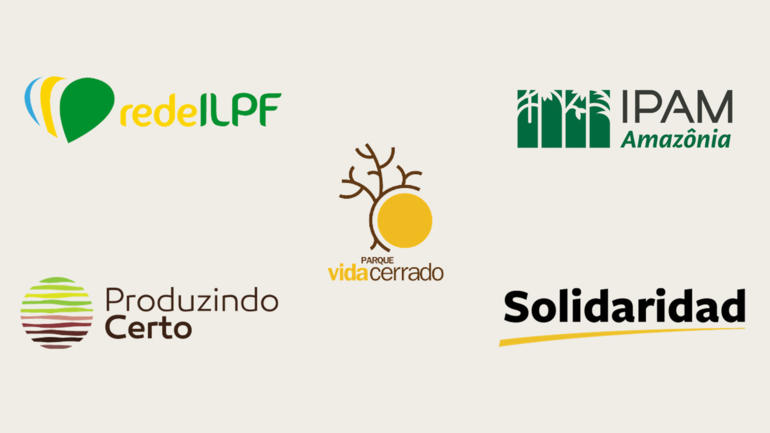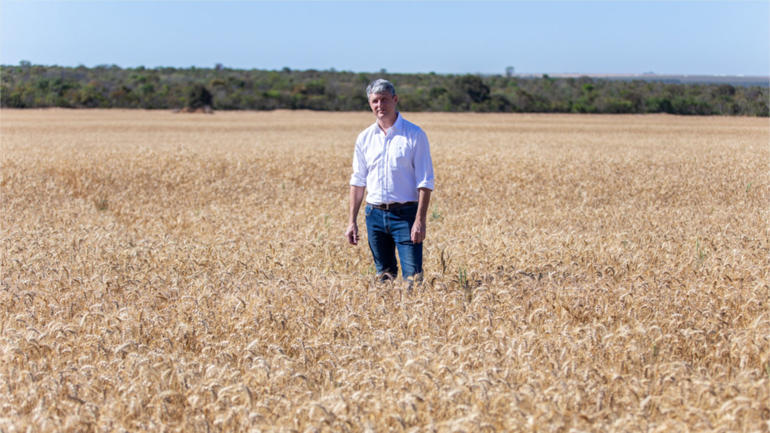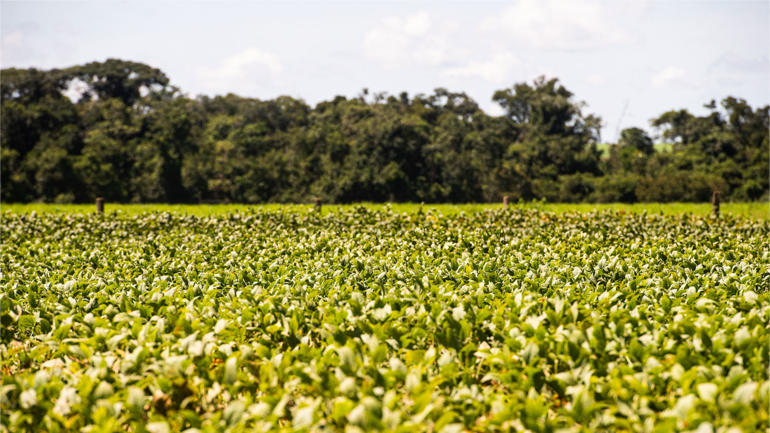“Through our initiative, we're not just conceptualizing ideas; we're implementing real-world solutions on the ground”
In this interview, Rodrigo Castro, Brazil Country Director at Solidaridad Network, delves into the complexities and potential surrounding sustainable agriculture and pasture restoration in Tocantins. He emphasizes the critical role of engagement with platforms such as the Soft Commodities Forum (SCF), whose goal is to eliminate soy-driven deforestation from high-risk landscapes. In this article, Rodrigo also highlights the SCF’s Farmer First Clusters (FFC) initiative as a transformative approach to scaling integrated farming systems in the region.
Q: Can you provide an overview of Solidaridad’s mission and its specific goals in Brazil, especially regarding sustainable agriculture and deforestation- and conversion-free (DCF) production, and the role of the SCF in achieving these?
In Brazil, we have been implementing strategies for the last 15 years that specifically focus on promoting the socio-economic inclusion of farmers and fostering agricultural production in balance with nature. We support farmers with technical assistance and with adoption and transition to DCF and low-carbon agricultural systems.
The SCF is a strategic partner and catalyst in advancing Solidaridad’s agenda with the private sector and among investors. By investing in the transition to more sustainable and responsible food production, the SCF can have a catalytic effect in terms of influence, by shaping and driving the agenda toward DCF and sustainable production and investment.
Q: What role do you see or would like to see in the Farmer First Clusters (FFC) initiative?
We're aiming for the Farmer First Clusters to promote integrated production systems (ICLF [0]. The idea is to show farmers that by doing this, they can boost their profitability while managing their soil health and land more efficiently. In Tocantins, where we are supporting FFC producers and have established integrated production systems demonstration plots, the goal is to help farmers see the opportunity to recover degraded or underproductive pastureland[1].
In Brazil, we have 11 to 12 million hectares of degraded land, mostly pastureland in MATOPIBA [2], that is currently underproductive or abandoned. Imagine so many hectares being brought back into agricultural production! Of course, it's not easy. It requires technology, investment, and technical assistance, not to mention building trust with the farmers.
During our field visits to these plots, we sit down with farmers and go through the costs and benefits openly – from what they're spending on things like fertilizer to the upfront investments needed. By doing this, we help farmers grasp the real challenges, costs, and benefits of transitioning to integrated systems and expanding soy over degraded land. Through these demonstration plots, we share with farmers the knowledge they need to make smart choices for their farms.
Q: You highlighted one of the key challenges for producers in transitioning to DCF and sustainable production is the upfront cost. Who should pay for this in those first transition years? [3]
This is something we've grappled with, as we move forward with initiatives like the Farmer First Clusters and strategic landscape approaches. Addressing climate change requires a systemic change that transcends individual actions and requires collective effort and investment. It's not just about throwing money at the problem; it's about strategically investing in solutions and sharing the responsibility across multiple stakeholder groups.
Take the example of low-carbon agriculture initiatives in Brazil, funded through public credit lines. How can we leverage these resources and bring in investors to de-risk the financial burden on farmers transitioning to sustainable practices?
It's about setting up a framework where everyone contributes in their own capacity, be it through financial support, technical assistance or creating conducive policy environments. This shared responsibility approach fosters collaboration and creates a win-win situation where players along the whole value chain and beyond are invested in the outcome.
Q: What insights would you share, for SCF members to better understand farmers’ perspectives?
It's not just about dictating methods to farmers; rather, it's about focusing on sustainable production objectives. With a pre-competitive forum like the SCF, your commitment goes beyond individual interests. The problem today is that we still have a commercial agenda that operates separately from the climate and sustainability agenda. Companies need to integrate their business and investment models with environmental and climate indicators so that these are part of the commercial strategy. It's not enough to simply ensure traceability and chain of custody; we need to think bigger and envision a future where the business community thrives in harmony with the planet.
Q: What would you say to Cerrado soy producers on what they are to gain by joining your programs?
Through our initiative, we're not just conceptualizing ideas; we're implementing real-world solutions in the field. The cornerstone of our approach lies in the deployment of demonstration plots that serve as practical showcases of transformation from degraded pastureland to productive agricultural areas. Over a planned timeline spanning three to four years, we detail the process of restoring productivity to these lands and outline the associated costs and technical assistance required [4].
These demonstration plots provide a clear picture of the investment needed, the efforts involved and the anticipated returns. By the fourth year, farmers witness firsthand the fruits of their labor as these once-degraded areas are revitalized for grain production. Through these real-time pilots, we offer insights into the additional income generated from previously underutilized land. While it's undeniable that there are upfront costs, particularly in the initial stages, our demonstration plots underscore the long-term financial benefits of sustainable farming practices.
Yet, it's crucial to recognize that achieving this vision requires a conducive investment environment. While the benefits are clear, ensuring widespread adoption by producers and other stakeholders necessitates collaborative efforts to address existing gaps in the financial ecosystem. The transition to sustainable agriculture at scale requires active participation and support from multiple stakeholders, including governments, financial institutions, NGOs, and private sector actors. Together, we can create an environment that enables producers to embrace sustainable practices and drives positive change across agricultural landscapes.
| [0] Integrated production systems combine crop production, livestock raising, and forestry activities on the same land to optimize efficiency, enhance productivity, diversify income, and promote ecological resilience. (Integrated Crop-Livestock-Forestry Systems - Portal Embrapa) |
| [1] The restoration of degraded lands is an international priority to mitigate climate change as well as protect biodiversity. (Spatial planning for restoration in Cerrado: Balancing the trade‐offs between conservation and agriculture - Schüler - 2022 - Journal of Applied Ecology - Wiley Online Library) |
| [2] MATOPIBA refers to a region composed of the states of Maranhão, Tocantins, Piauí, and Bahia, which has seen significant agricultural development in recent decades, especially for crops such as soybeans, corn, and cotton. However, agricultural growth has also brought environmental challenges, such as deforestation and conversion of native vegetation.(About the theme - Portal Embrapa) |
| [3] Early research showed that it can take 3-5 years for a farm to recover from past practices and pay off in terms of higher profits (Make Your Farm Resilient and More Profitable with Regenerative Agriculture – Center for Regenerative Agriculture and Resilient Systems – Chico State (csuchico.edu)) |
| [4] Demonstration plots have a key role in sustainable agriculture transition initiatives such as the FFC (Demonstration farms & their role in sustainable farming projects - Farm Demo Conference - IFOAM Organics Europe) |

